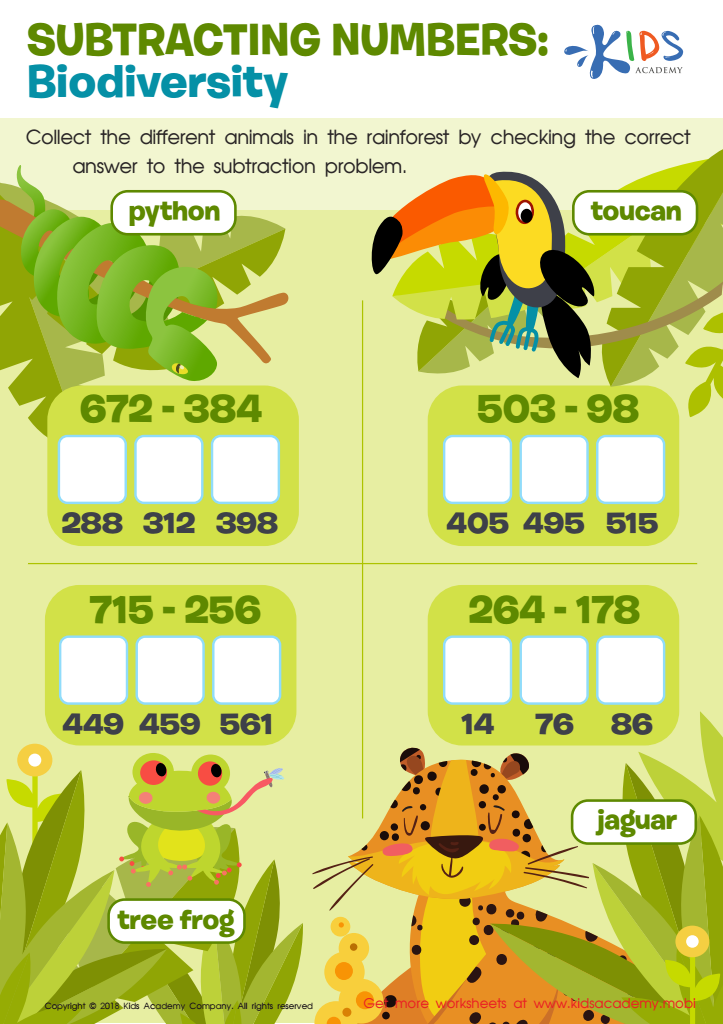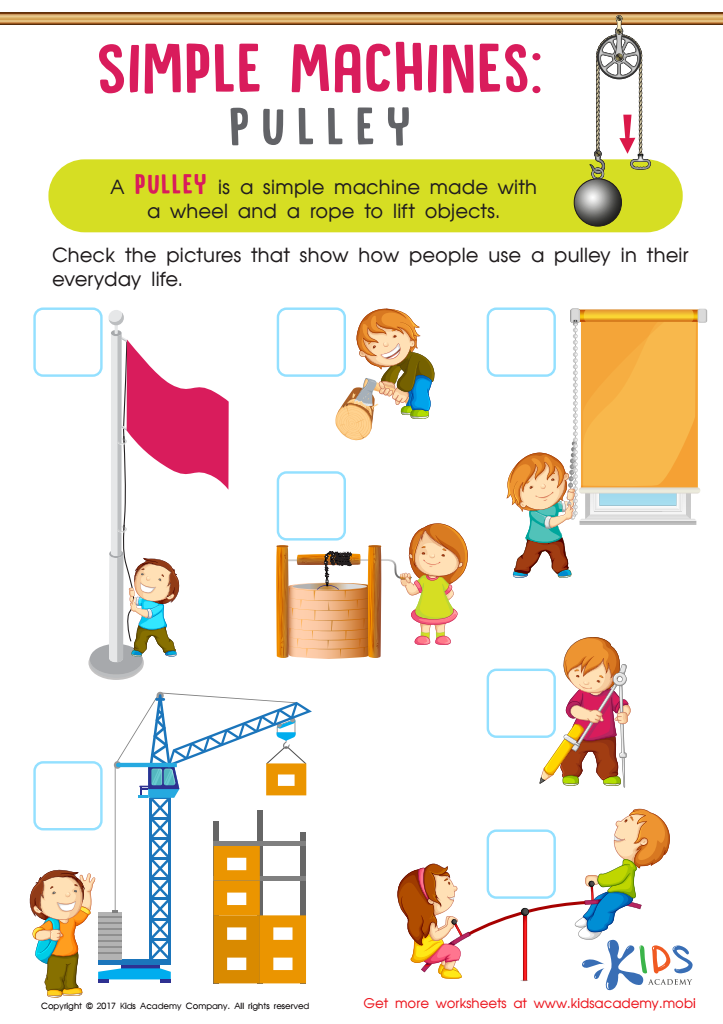Enhancing analytical thinking Worksheets for 7-Year-Olds
3 filtered results
Difficulty Level
Grade
Age
-
From - To
Subject
Activity
Standards
Favorites
With answer key
Interactive


Subtracting Numbers: Biodiversity Worksheet
Engage students in simple tasks to make subtraction enjoyable and easier to understand. Use worksheets with colorful print and enjoyable concepts. Ask students to identify the animals and read their names. Check the correct answer to the subtraction problem to help them collect the animals in the rainforest.
Subtracting Numbers: Biodiversity Worksheet
Worksheet


Simple Machines Pulley Worksheet
Pulleys make everyday life easier, from flag poles to elevators. This worksheet helps kids recognize and appreciate how pulleys simplify our lives. They'll learn about the many practical uses for these simple rope and wheel systems.
Simple Machines Pulley Worksheet
Worksheet
 Assign to the classroom
Assign to the classroom













